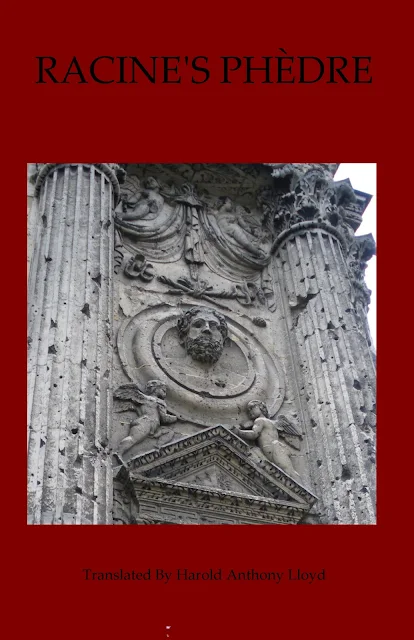Not only is there a new book out about #Hypatia but Chapter 2 begins with lines from my #translation of the Complete #Palladas.
In addition to law and language generally, this blog explores philosophy, translation, poetry (including my own poetry and translations), legal education reform, genealogy, rhetoric, politics, and other things that interest me from time to time. I consider all my poems and translations flawed works in progress, tweak them unpredictably, and consider the latest-posted versions the latest "final" forms. I'd enjoy others' thoughts on anything posted. © Harold Anthony Lloyd 2024
Showing posts with label Verse Translation. Show all posts
Showing posts with label Verse Translation. Show all posts
Monday, July 12, 2021
Friday, June 10, 2016
Rhetoric to Lettie (A Book of Original Verse)
Lettie 6/12/2001 to 6/2/2013
© Harold Anthony
Lloyd 2016
Preface for Lettie
A household lacking
animals
Is like a Cyclops who
Half-brained has
lost an ear, a hand,
A leg, a nostril, too.
Labels:
Du Bellay,
English,
Epigram,
Ethics,
French Poetry,
Grammar,
Humanities,
Humor,
Interpretation,
Kingdom of God,
Language,
Philosophy,
Poetry,
Poets,
Religion,
Rhetoric,
Sonnet,
Translation,
Verse Translation
Thursday, June 9, 2016
RACINE’S PHÈDRE
PHÈDRE
By
Jean Racine
Translated By Harold
Anthony Lloyd © 2016 Translator’s Note: To accommodate the different rhythm of English, I have generally rendered the French alexandrine couplets into iambic pentameter ones. To accommodate further the linguistic difference, I have freely used enjambment. I agree with Richard Wilbur that stacking up end-stopped lines in English can sound like piling lumber.
Wednesday, June 8, 2016
Thursday, May 26, 2016
Wednesday, May 4, 2016
Verse Translation: A Call for Harder Work and Greater Care
Too much verse translation is too free and loose. We must take the time and effort to preserve both meaning AND form (including meter and rhyme where they exist) without sacrificing one for the other. Though we can never fully translate verse from one language to another, we can come close if we’re willing to work hard enough. To illustrate this, I want to give some French to English examples of my own. I don’t claim they are perfect by any means but I think they make my point. I ask the reader to pull the original French texts and compare them with what I have done. I break my examples into seven parts (I-VII).
Subscribe to:
Comments (Atom)




